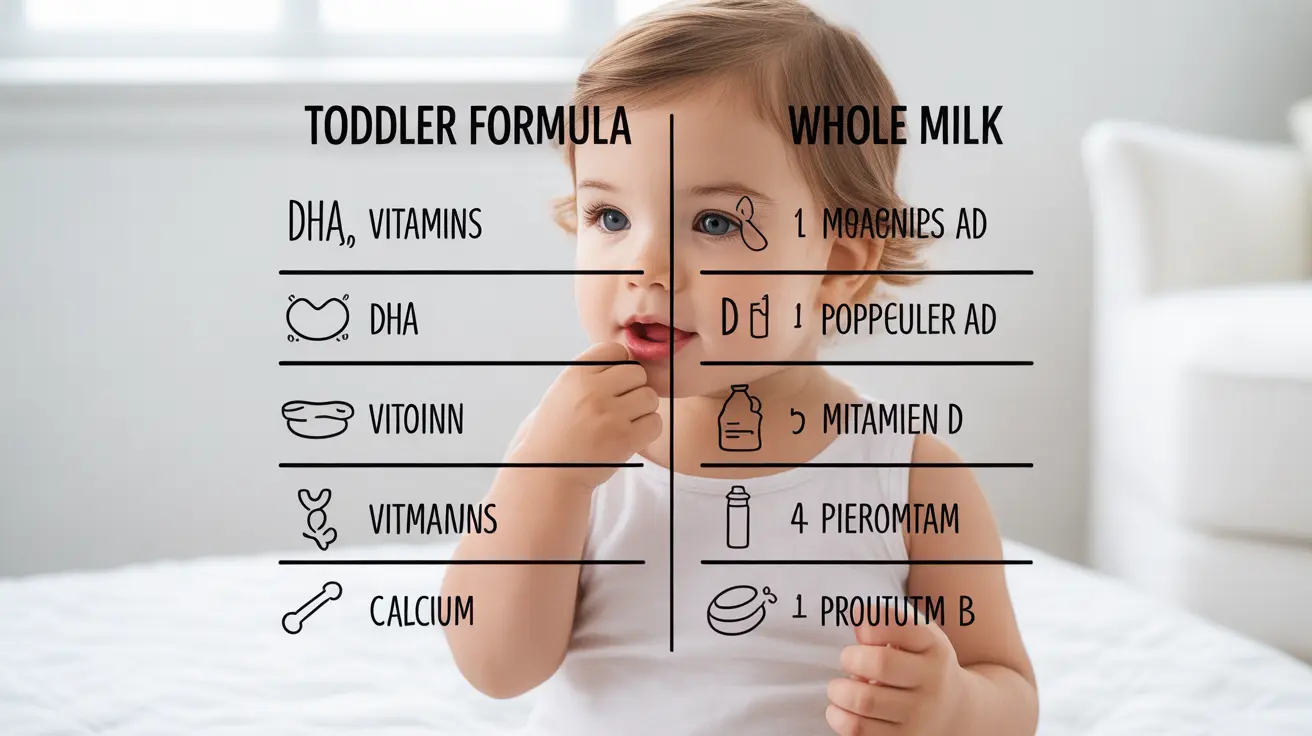As parents navigate the transition from infant formula to regular milk, many encounter marketing for toddler formula that promises optimal nutrition for their growing children. However, understanding whether toddler formula is truly necessary or beneficial can be challenging. This comprehensive guide will help you make an informed decision about your toddler's nutritional needs.
Understanding Toddler Formula and Its Components
Toddler formula, also known as transitional formula or growing-up milk, is a specialized dairy drink marketed for children aged 12 months and older. These products typically contain added vitamins, minerals, and other nutrients that manufacturers claim support healthy development. However, it's important to understand that these products are not nutritionally necessary for most healthy toddlers.
Nutritional Comparison: Toddler Formula vs. Whole Milk
While toddler formula contains added nutrients, whole milk provides essential nutrients naturally. Here's what parents should know about the nutritional content of each:
Whole Milk Benefits
- Natural source of calcium and vitamin D
- Contains protein for muscle development
- Provides healthy fats necessary for brain development
- More affordable than specialized formulas
- Contains no added sugars (unless flavored)
Toddler Formula Composition
- Contains added vitamins and minerals
- Often includes DHA and other fatty acids
- Generally higher in sugar content
- More expensive than whole milk
- May contain unnecessary additives
When Toddler Formula Might Be Appropriate
While most toddlers thrive on whole milk and a balanced diet, there are specific situations where toddler formula might be considered:
- Children with significant feeding difficulties
- Those with specific medical conditions
- Toddlers with severe nutritional deficiencies
- Cases where whole milk consumption isn't possible due to allergies
Making the Right Choice for Your Toddler
The best choice for your toddler depends on several factors:
- Overall health status
- Eating habits and dietary variety
- Any existing medical conditions
- Professional medical advice
- Family dietary preferences and restrictions
Tips for Healthy Toddler Nutrition
Rather than relying solely on toddler formula, focus on these nutritional strategies:
- Offer a variety of nutrient-rich foods
- Ensure regular meal and snack times
- Include protein sources at each meal
- Provide plenty of fruits and vegetables
- Maintain consistent dairy intake through milk or alternatives
Frequently Asked Questions
Is toddler formula better than whole cow's milk for children over 12 months?
No, toddler formula is not necessarily better than whole cow's milk for most children over 12 months. Whole milk, combined with a balanced diet, provides all the necessary nutrients for healthy development in most toddlers.
What are the nutritional differences between toddler formula and regular cow's milk?
Toddler formula contains added vitamins, minerals, and often DHA, while cow's milk naturally provides calcium, protein, and vitamin D. However, the added nutrients in toddler formula can typically be obtained through a balanced diet.
Are toddler formulas necessary for healthy toddler development?
For most healthy toddlers, toddler formulas are not necessary. A balanced diet including whole milk, fruits, vegetables, proteins, and whole grains provides adequate nutrition for normal development.
What are the potential risks or downsides of giving a toddler formula instead of cow's milk?
Potential downsides include higher cost, added sugars, unnecessary additives, and the risk of reducing dietary variety if relied upon too heavily as a primary source of nutrition.
How can I choose the best milk or formula for my toddler with dietary restrictions or allergies?
If your toddler has dietary restrictions or allergies, consult with a pediatrician or registered dietitian who can recommend appropriate alternatives based on your child's specific needs. Options might include fortified non-dairy beverages or specialized formulas.




